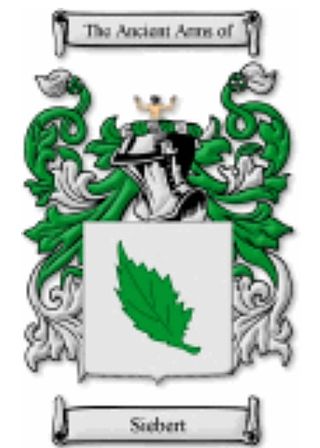Neumark is a family name of Scandinavian or Germanic origin. The name can be an Americanized form of the Scandinavian name, Nymark, a common habitual name from farms named with "Ny-Mark" or "new field".
Neumark also derives from Germanic origin and relates to persons from the Neumark region in Brandenburg.
In addition, Neumark can be an Ashkenazi Jewish surname derived from "Nay-Mark" (Yiddish: "new market"). Naymark was a name adopted by merchants such as Aharon Naymark who was a famous fabrics merchant: his descendants today are famous jewelers.
Wulf was one of the most prolific elements in early Germanic names. It could figure as the first element in dithematic names, as in Wulfstan, but especially as second element, in the form -ulf, -olf as in Cynewulf, Rudolph, Ludolf, Adolf etc., it was extremely common. Förstemann explains this as originally motivated by the wolf as an animal sacred to Wodanaz, but notes that the large number of names indicates that the element had become a meaningless suffix of male names at an early time.
Hanke or Hancke is a surname of Germanic or Scandinavian origin. It is most common in Germany, Denmark, and Sweden, but now widely found in the United States, South Africa, and the United Kingdom. Hanke is also a male first name in Germany.
Engelbrecht is a common family name (surname) of Germanic origin. The name Engelbrecht has multiple translations, including "Angel Glorious" and "Bright Angel". The Surname Database says the name is a Dutch variant of an Old High German given name sometimes spelled Ingelbert or Engelbert. Engel can translate as "Angle", a person from Angeln, or "angel". Brecht can translate as "bright" or "famous". The name was popular in Middle Age France because it was the name of a son-in-law of Charlemagne.

Piotrowski is a Polish surname derived from the masculine given name Piotr (Peter). The name, and its variations indicate a family's origin as being from a town, such as for instance Piotrów and Piotrowo, or a toponym deriving from a holding, manor or estate. Variants and related names include Piotrowicz, Piotrowiak, Piotrowsky, Pietrowski, Pietrkowski, Pietrowsky, and Pietrowiak.
Hibbert is a surname. Its origin can be traced back to the Old Germanic given name Hildeberht, which is composed of German elements hilde and berht. Today it might be translated to "bright battle". It was adopted by the Normans, where it became "Hildebert" or "Hilbert".
Schmied is a surname of German origin. Its meaning is derived from the German word Schmied, which is a smith. Common variants are Schmidt, Schmitt, and Schmitz.
Asher is an English and Germanic occupational surname for an ash maker, derived from the Midd English surname "Aschere" or from German " Äscher"(Ashman). It could also be a form of the Old English surname "Æsċer"(Æsċe +ere), meaning someone who lived by an ash tree or ash grove, suffix denoting an inhabitant. It is also a common Jewish and Christian first name, as well as a Jewish surname, and is the name of Asher the son of Israel in the Hebrew Bible—therefore unrelated to the Old English or Germanic occupational root. Jacob said that the land of Asher would have rich food and delicacies fit for kings. Moses also gave a blessing to each of the twelve tribes. Moses' blessing said that Asher would be blessed with sons, pleasing to his brothers, and have his foot immersed in oil.
Welsh is a surname from the Old English language given to the Celtic Britons. The surname can also be the result of anglicization of the German cognate Welsch. Welsh is a popular surname in Scotland.
Rothstein is a Germanic-language surname of several possible origins: toponymic surname from a place with the same name near Merseburg; from a Germanic personal name, Hrodstein. Ashkenazic Jewish / Yiddish: ornamental compound surname: rot ‘red’ + Stein ‘stone’, akin to "Rotstein".
Gentner is a surname of German origin. The first records of the Gentner name can be traced back to Württemberg, southwest Germany, in the late 1300s.

Siebert is a surname derived from the Germanic personal name composed of the elements sigi ‘victory’ + berht ‘bright’, ‘famous’.
The name Weeks is an uncommon English surname, usually either a patronymic of the Middle English Wikke or a topographic or occupational name deriving from Wick. It may also be an Anglification of the Scandinavian habitational name Vik.
Kunde is a Germanic surname with origins in Bohemia and Silesia. It is borne by individuals in Germany, Austria, Switzerland, the Netherlands, the Scandinavian countries, the United States, Australia and other countries. Individuals mentioned in ancient chronicles include Cuntz der Kuentzel of Kempten who lived around 1382, and Cuncze von Cracow who lived in Liegnitz, Silesia in 1388.

Bain or Bains is an English, French, Punjabi (Jatt), and Scottish surname. It may also be a variant form of a German surname.
Bagge is a family name of predominantly Scandinavian origin. It may refer to:

Dethloff is a surname. The name origins from North German and comes from A Personal Name Composed Of The Ancient Germanic Elements Theod ‘People Race’ + Wolf ‘Wolf’. The family has since its origin spread across europe and the world, and is now mainly found in the United States, Germany and Norway.
A toponymic surname or topographic surname is a surname derived from a place name, which included names of specific locations, such as the individual's place of origin, residence, or lands that they held, or, more generically, names that were derived from regional topographic features. Some toponymic surnames originated as personal by-names that later were used as hereditary family names.
The uncommon English surname Rolfe derives ultimately from the Old Scandinavian and Germanic pre 5th century personal name "Hrodwulf". This was composed of the elements "hrod", meaning "renown", and "wulf", a wolf. In Norse the contracted form was "Hrolfr", in Danish and Swedish "Rolf", and it is said that these personal names reached England first through their popularity with Scandinavian settlers before the Norman Conquest of 1066. The Normans thereafter introduced their own form of the name, generally found as "Rou" or "Roul" and often Latinised as "Rollo".
Gerling is a German language surname. Such as the related Gehrig, Gehring, Gering and Gehr it belongs to the group of family names derived from given names – in this case from any of several compound names of Germanic origin with the beginning element ger – and may refer to:

Waering is a Germanic surname. Although Grant Allen and Isaac Taylor described Wæring as an Anglo-Saxon clan name equivalent to the Norse Væringjar, the eminent British philologist Walter William Skeat suggested that it might be a patronymic.